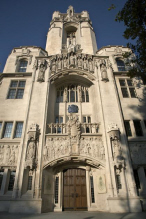End of the pier?
 Donna Makin and Nicholas Mallen analyse a Supreme Court decision which meant a local authority had to pay a significant amount of compensation over a decision to close a pier.
Donna Makin and Nicholas Mallen analyse a Supreme Court decision which meant a local authority had to pay a significant amount of compensation over a decision to close a pier.
In what is believed to be the first reported case on what constitutes "default" for the purposes of Section 106 Building Act 1984, the Supreme Court has held in Manolete Partners plc v Hastings Borough Council [2016] UKSC 50 that a council is liable to pay compensation as a result of the exercise of its emergency powers under Section 78 Buildings Act 1984 to restrict public access to a pier because of safety concerns.
Background
The case concerned Hastings pier, which was owned by Panama based company Ravenclaw Investments Incorporated (‘the Owner’) and part occupied by Stylus (‘the Tenant’), which ran a bingo hall and amusement arcade business. The Tenant had become increasingly concerned over the structural integrity of the pier and an independent building survey in 2004 (‘the Survey’) confirmed multiple, dangerous structural defects throughout the pier. Although the Survey was sent to the Owner and the local authority, neither sought to carry out the necessary remedial works.
By 2006, the defects were only getting worse. This time the local authority itself commissioned a second survey, which confirmed that the pier was at risk of collapse from any crowd-loading. This was especially disconcerting given that a number of busy events were due to take place on the pier in the following months. The local authority sought to immediately close the pier using its power under S78 Building Act 1984 on the grounds of safety concerns.
The Tenant then took matters into its own hands and funded the repairs itself, presumably to get its business back up and running. Although the Tenant did attempt to recoup its money from the Owner, it was unsuccessful (due to technical jurisdiction reasons). The Tenant then initiated a claim against the local authority for the losses it had suffered when it had been required to close. However, by the time the claim reached court in 2012, the Tenant had become insolvent and proceedings were assigned to Manolete Partners plc (‘Manolete’).
Proceedings
S106 Building Act 1984 (‘the Act’) requires a local authority to fully compensate any loss to a business as a result of it exercising its powers under S78 (as had clearly been the case here). However, S106 only applies where the business seeking compensation had not been in “default”.
The local authority argued that Manolete was in default because it had breached its duty under the Occupiers’ Liability Act 1957 and the Health and Safety at Work Act 1974 by continuing to run its business despite being well aware of the dangers inherent within the pier.
The Court at first instance disagreed with the local authority, ruling that default meant only in relation to the Act itself. The ruling was appealed but the Court of Appeal declined to overturn the decision.
The local authority then took case to the Supreme Court, which unanimously dismissed the local authority’s appeal. However, the Supreme Court tackled the issue differently. The Supreme Court identified the “matter” that triggered the local authority’s decision to close the pier and then considered whether the Tenant was in default of this “matter”. The “matter” was the state of the pier combined with the fear of collapse identified by the 2006 survey. The Tenant was not in default of that matter because it was not legally responsible for the repair. Accordingly, the Tenant/Manolete was eligible to receive compensation from the local authority.
Somewhat surprisingly the Supreme Court did make it clear that the reference to “default” in S106 is not limited to breaches of the Act itself but extended to other breaches. Fortunately for the Tenant/Manolete, however, this made no difference to the outcome of their case.
Comment
It is easy to feel sympathy for the local authority in this case (which was acting to protect the public from a very dangerous pier) but in the long view, the decision may benefit local authorities. Although the specific facts of this case rendered the local authority liable for compensation, the Supreme Court has actually widened the interpretation of the Act – thus, preventing any defence to be brought merely on the basis that there has been no default under the Act itself.
Furthermore, the Supreme Court also emphasised that issues such as the structural condition of the pier and the impact this would have on its business could be taken into account when assessing the amount of compensation payable; thereby creating another outlet for local authorities to limit their damage when acting in the public interest.
Donna Makin is a partner and Nicholas Mallen is a senior associate at Geldards. Donna can be contacted on 029 2039 1749 or This email address is being protected from spambots. You need JavaScript enabled to view it., while Nicholas can be reached on or This email address is being protected from spambots. You need JavaScript enabled to view it..